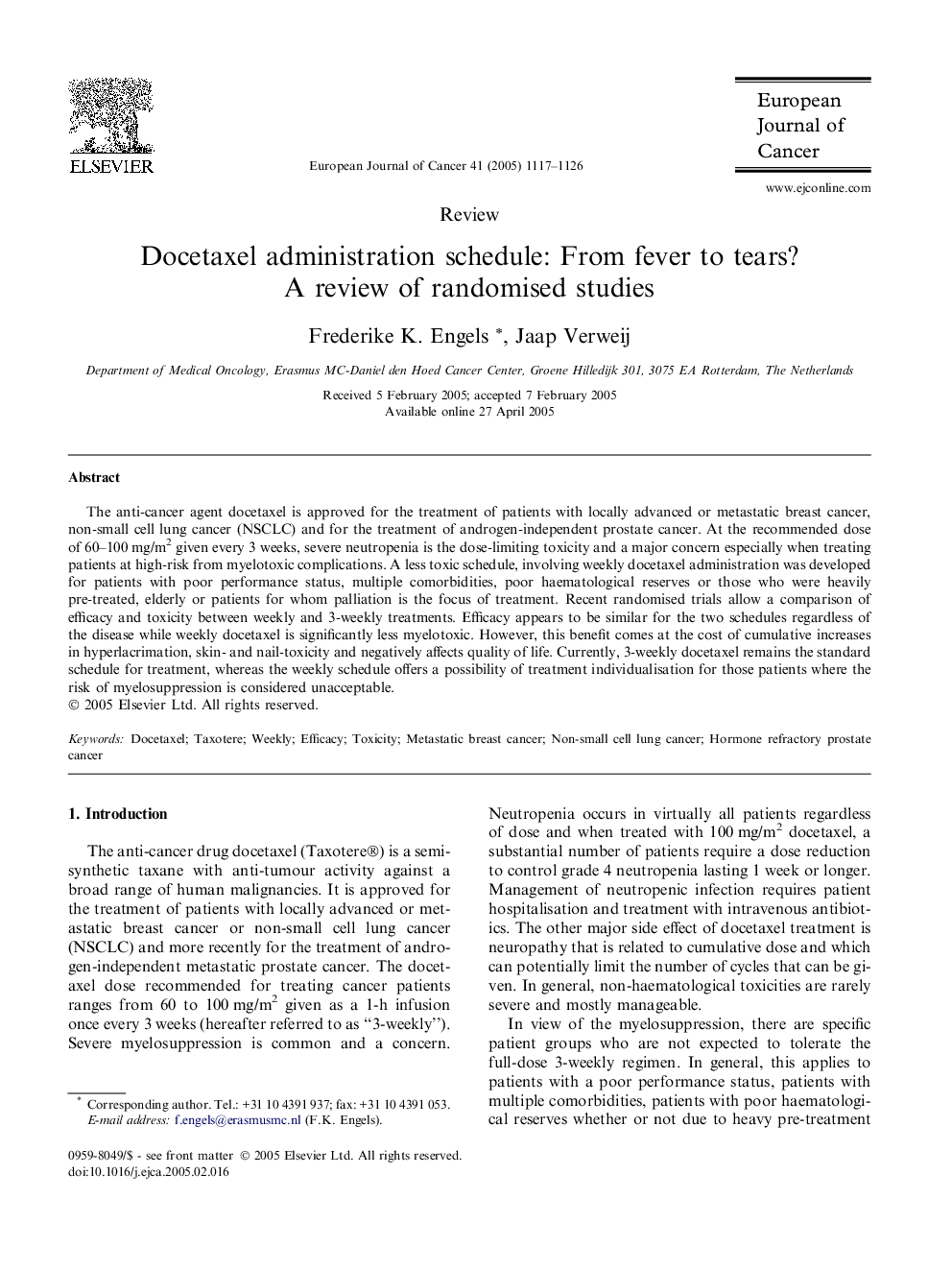| Article ID | Journal | Published Year | Pages | File Type |
|---|---|---|---|---|
| 9905782 | European Journal of Cancer | 2005 | 10 Pages |
Abstract
The anti-cancer agent docetaxel is approved for the treatment of patients with locally advanced or metastatic breast cancer, non-small cell lung cancer (NSCLC) and for the treatment of androgen-independent prostate cancer. At the recommended dose of 60-100Â mg/m2 given every 3 weeks, severe neutropenia is the dose-limiting toxicity and a major concern especially when treating patients at high-risk from myelotoxic complications. A less toxic schedule, involving weekly docetaxel administration was developed for patients with poor performance status, multiple comorbidities, poor haematological reserves or those who were heavily pre-treated, elderly or patients for whom palliation is the focus of treatment. Recent randomised trials allow a comparison of efficacy and toxicity between weekly and 3-weekly treatments. Efficacy appears to be similar for the two schedules regardless of the disease while weekly docetaxel is significantly less myelotoxic. However, this benefit comes at the cost of cumulative increases in hyperlacrimation, skin- and nail-toxicity and negatively affects quality of life. Currently, 3-weekly docetaxel remains the standard schedule for treatment, whereas the weekly schedule offers a possibility of treatment individualisation for those patients where the risk of myelosuppression is considered unacceptable.
Keywords
Related Topics
Life Sciences
Biochemistry, Genetics and Molecular Biology
Cancer Research
Authors
Frederike K. Engels, Jaap Verweij,
